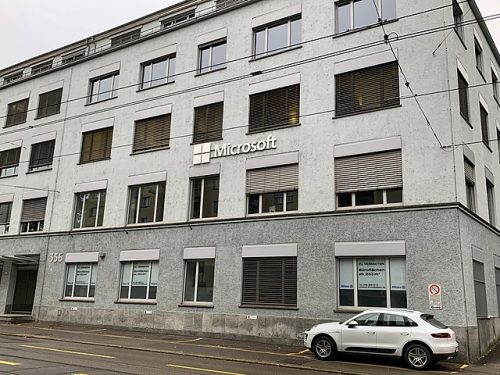In a recent internal presentation from June 2022, Microsoft unveiled its ambitious plan to transition Windows fully to the cloud, not just for commercial customers but also for consumers.
The presentation, revealed as part of the ongoing FTC v. Microsoft hearing, sheds light on the company's strategy to leverage the power of the cloud and artificial intelligence (AI) to enhance user experiences and enable seamless digital roaming across devices.
Windows 365, a service that streams a complete Windows operating system to devices, has been a stepping stone towards this cloud-centric vision. Initially catering to commercial customers, Microsoft has been actively integrating Windows 365 into Windows 11.
Future updates, such as Windows 365 Boot and Windows 365 Switch, will further enhance the integration by allowing devices to log in directly to a cloud-based PC instance during boot and seamlessly integrating Cloud PCs into the virtual desktops feature.
By extending the cloud-based approach to consumers, Microsoft aims to provide a full Windows operating system streamed from the cloud to any device. This transformation aligns with the company's long-term opportunity in the "Modern Life" consumer space, as outlined in the presentation.
The vision encompasses leveraging the cloud and client capabilities to deliver improved AI-powered services and enable users to effortlessly roam their digital experiences across various devices.
Furthermore, Microsoft recognizes the importance of investing in custom silicon partnerships to support its cloud-driven ambitions. The company has already ventured into this realm with ARM-powered Surface Pro X devices, and there have been reports suggesting Microsoft's exploration of designing its own ARM-based processors for servers and Surface devices.
Additionally, Microsoft's potential foray into AI chip development showcases its commitment to harnessing advanced technologies to enhance the Windows ecosystem.
One of the key driving forces behind Microsoft's cloud-centric approach is the need to reinforce the commercial value of Windows and respond to the growing threat posed by Chromebooks. The presentation highlights the significance of expanding the usage of cloud PCs with Windows 365 to bolster Windows' position in the modern workplace.
By embracing the cloud, Microsoft aims to provide a robust and versatile platform that can effectively compete with Chromebooks and cater to the evolving needs of business users.
As part of its broader AI push, Microsoft has introduced Windows Copilot, an AI-powered assistant for Windows 11. This innovative feature sits alongside the operating system and offers capabilities such as content summarization, rewriting, and explanations.
Windows Copilot represents Microsoft's commitment to integrating AI into Windows to revolutionize how users interact with the operating system. Collaborations with AMD and Intel further indicate the company's intent to leverage next-generation CPUs for unlocking advanced Windows features.
With the promise of improved AI-powered services and seamless cloud-based experiences, Microsoft's internal presentation paints a compelling future for Windows. While specific timelines and details remain undisclosed, the company's focus on cloud-based solutions and AI advancements signifies its dedication to staying at the forefront of technological innovation.
As Windows evolves to become a more cloud-centric platform, users can anticipate a more interconnected and intelligent computing environment that simplifies their digital lives.
Overall, Microsoft's vision of transitioning Windows fully to the cloud for consumers demonstrates the company's commitment to harnessing the power of cloud computing and AI to shape the future of computing experiences. As the journey unfolds, it will be intriguing to witness how Microsoft's cloud-based strategy unfolds and how it resonates with consumers worldwide.
























